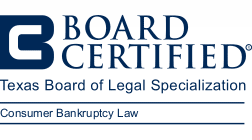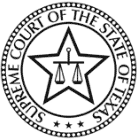When Inflation Makes Your Texas Chapter 13 Unworkable
 Inflation and cost-of-living increases are hitting confirmed Chapter 13 plans hard. Debtors whose budgets were feasible in 2022-2023 may no longer stretch to cover the bare essentials, including housing, insurance, utilities, and groceries. Texans who filed Chapter 13 a few years ago are now discovering that their payment plans no longer fit their current budgets. Because of this, Courts in the Northern, Southern, and Western Districts are seeing a spike in 11 U.S.C. §1329 modification motions.
Inflation and cost-of-living increases are hitting confirmed Chapter 13 plans hard. Debtors whose budgets were feasible in 2022-2023 may no longer stretch to cover the bare essentials, including housing, insurance, utilities, and groceries. Texans who filed Chapter 13 a few years ago are now discovering that their payment plans no longer fit their current budgets. Because of this, Courts in the Northern, Southern, and Western Districts are seeing a spike in 11 U.S.C. §1329 modification motions.
The federal bankruptcy code allows debtors to request a plan modification when circumstances change. If you find yourself in such a situation, it is essential that you know how to present a solid, good-faith request for adjustment to keep your case on track and your discharge intact. An experienced Waller County, TX bankruptcy attorney can help you file for a modification of your payment plan.
What Does Chapter 13 Bankruptcy Modification Under Section 1329 Allow?
Texans, like consumers across America, are seeing significant increases in their fixed expenses, such as housing, utilities, insurance, property taxes, and, of course, groceries. This means that a fixed payment plan that may have been set even three years ago is no longer feasible under the current increase in expenses.
Trustees report seeing an increase in Chapter 13 material defaults, which occur when a debtor fails to make court-ordered payments on time. In some instances, the trustee may file a motion to dismiss the bankruptcy case, causing the debtor to lose the protections of the automatic stay. This makes it crucial to communicate with the trustee when a rise in expenses could result in a missed payment. Section 1329 allows modifications to:
- The monthly payment amount or schedule
- How the monthly payments are distributed among creditors
- The length of the plan (up to 60 months total)
The debtor, trustee, or unsecured creditor can seek a change under Section 1329, but the change must be proposed in good faith and must be feasible. Unforeseen and substantial changes must be shown. These changes could be seen in increased childcare, housing, utility, health-insurance, property, and home insurance premiums, as well as food and transportation costs. The change could also be requested for wage stagnation, a job (and income) change, or reduced overtime due to slowdowns.
How is a Chapter 13 Modification Requested?
To begin a Chapter 13 modification request, the debtor must review the current Chapter 13 repayment plan budget and schedules. Income, expenses, and dependents should be updated, and a bankruptcy attorney should be consulted to avoid a material default dismissal. Continued feasibility and an equal return to unsecured creditors should be shown when possible. A motion to Modify, with supporting documentation, will be filed, along with updated pay stubs, receipts, and evidence of increased cost of living. A confirmation hearing will be held; the debtor should be prepared for trustee objections regarding necessity or good faith.
What Are the Potential Options for Texas Debtors Filing for Chapter 13 Modification?
If the debtor has a three or four-year repayment plan, the plan may be extended up to 60 months to reduce monthly payments. A limited moratorium could be granted, which would temporarily suspend or defer payments. If modification is not a viable path, and dischargeable debt remains, the Chapter 13 repayment plan could potentially be converted to a Chapter 7 bankruptcy. The court could also use a percentage-of-income or step-plan structure to adjust for variable income if approved by Texas trustees.
Contact a Galveston, TX Chapter 13 Bankruptcy Attorney
If rising costs have made your Texas Chapter 13 plan impossible to maintain, you do not have to risk dismissal or foreclosure. A highly skilled Waller County, TX bankruptcy lawyer from The Fealy Law Firm, PC can help you prepare a good-faith modification motion to reflect your current economic reality. Attorney Fealy can evaluate your budget, negotiate with the trustee, and protect your discharge eligibility because her focus is always on helping good people through hard times. To schedule your free consultation, call 713-526-5220.












